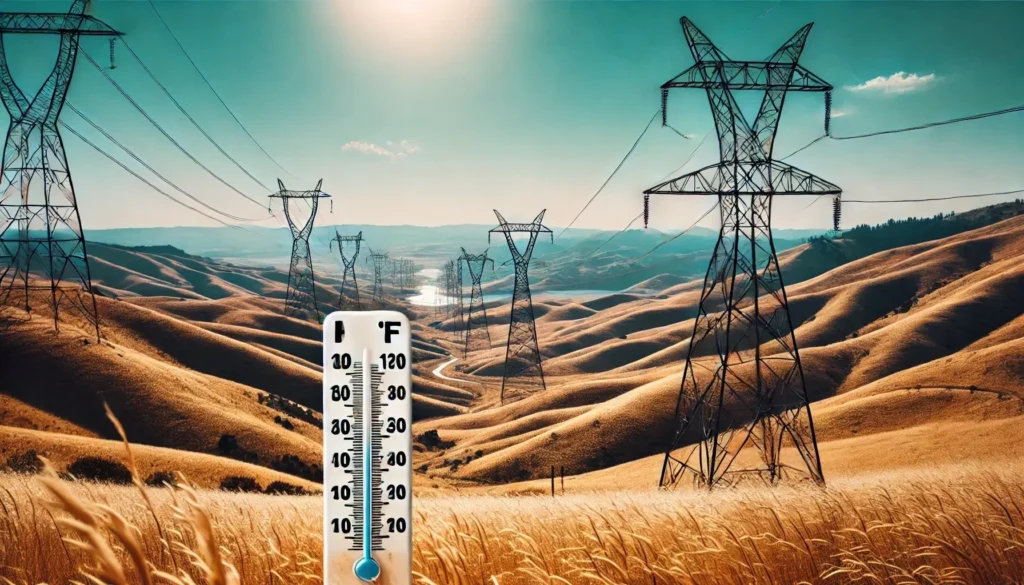Since early 2019, the probability of an extended power outage has increased for Sacramento Area businesses, especially those east of the SMUD service area, which covers most of Sacramento County.
That year, PG&E implemented Public Safety Power Shutoffs (PSPS) to be more proactive about the company’s part in wildfire prevention.
Unlike an unplanned power outage resulting from an unexpected event, PSPS aims to trigger a PG&E outage as a preemptive measure. The goal is to prevent PG&E infrastructure components from starting or exacerbating a wildfire when weather conditions pose a high fire danger.
While PSPS is well-intentioned, one consequence is that Sacramento Area businesses may suddenly be without power for an extended period.
If the power goes out early in the work day, a California business is required to pay non-exempt employees for the entire day.
PG&E outages triggered by the PSPS program will last until PG&E and/or the California Department of Forestry and Fire Protection (CAL FIRE) believes the area is no longer at high risk for a wildfire. In addition, PG&E has stated that complete power restoration requires visual inspection of all transmission and distribution lines throughout the affected areas.
If your business is located in Northern California and is rated high risk for wildfires, a preventative PG&E outage is more likely to affect you.
Below, we’ll examine exactly which parts of the Sacramento Area are most likely to be affected by PG&E’s Public Safety Power Shutoffs, what other types of events may result in your business losing power, and what you can do to protect your business in the short and long term from power outages.
Areas Most Likely To Be Affected By a PSPS
The California Public Utilities Commission created a fire threat map that shows California’s areas at the highest risk for wildfires. These areas are also the most likely to be affected by a preventative PG&E power outage:
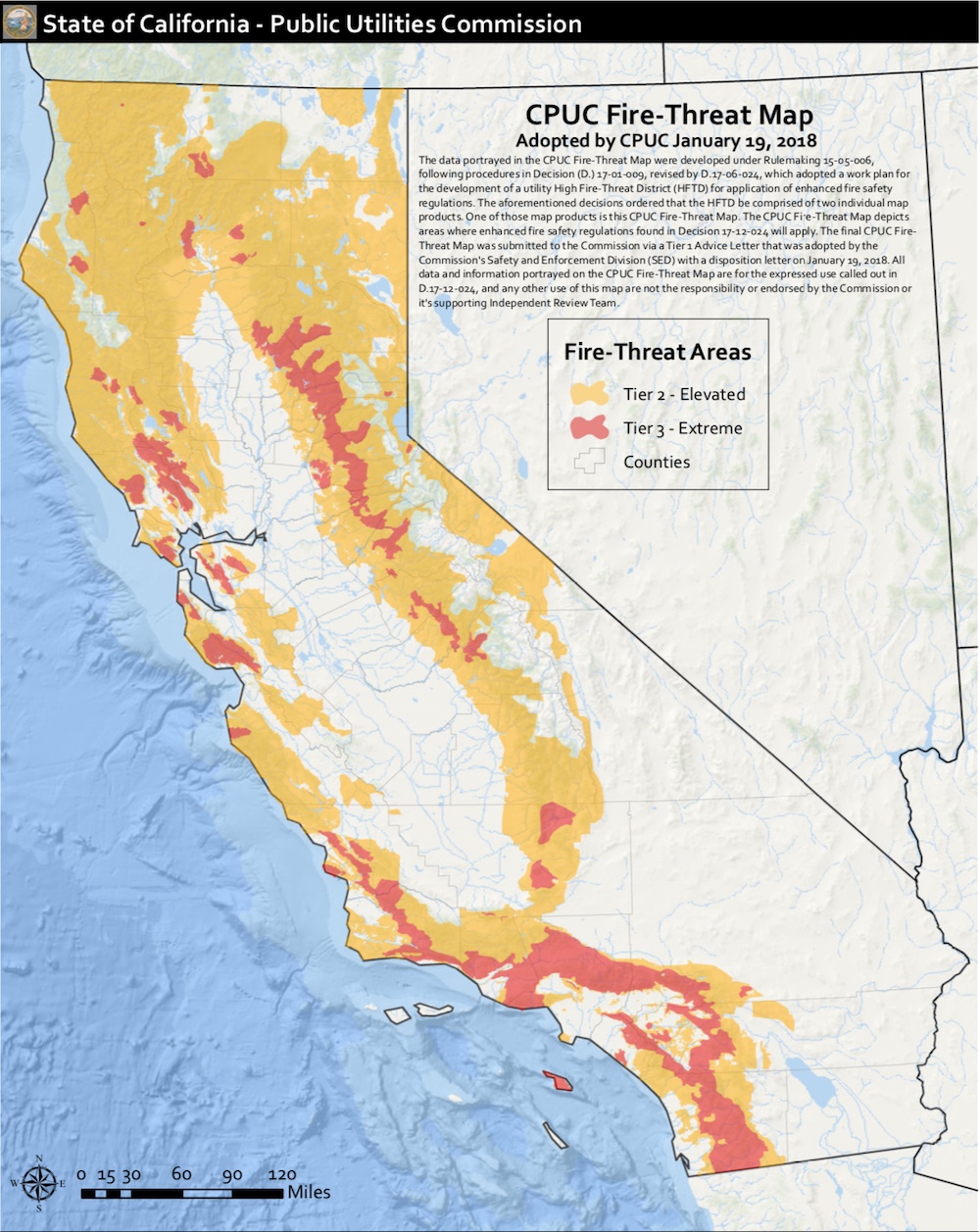
Businesses in the Central Valley are less likely to be affected by this particular type of outage due to the relative lack of tall, dry vegetation. However, if your business is in a Tier 2 or Tier 3 Fire Threat Area, you could be subject to extended PSPS power outages.
There is a PG&E page that forecasts future outages. On this page, click the ‘Future PSPS Outages’ button.
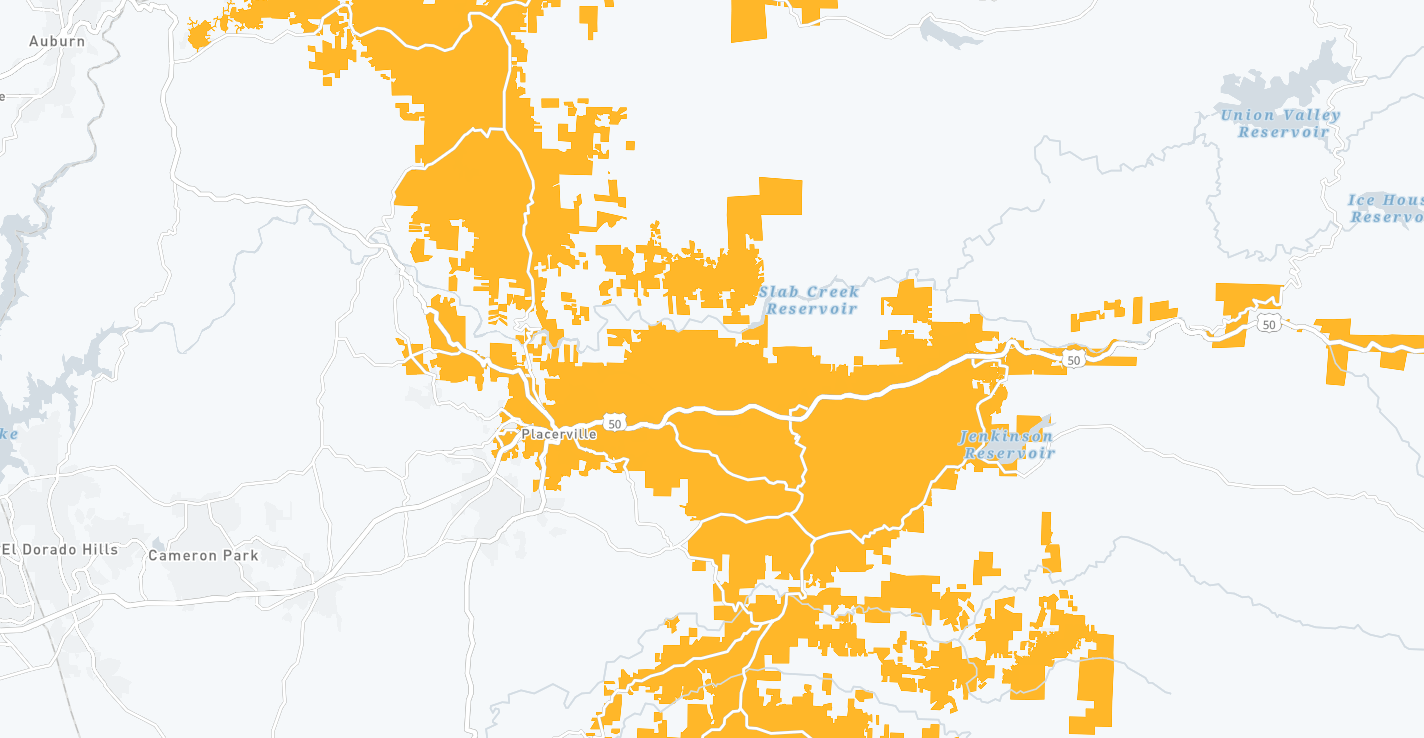
If your business is in an area that could be affected by Public Safety Power Shutoffs, you can sign up for business outage alerts directly from PG&E.
Signing up for alerts will allow you to monitor the status and severity of any outages your business experiences.
How To Protect Your Business From An Extended PG&E (or SMUD) Outage
The best way to protect your business from an extended power outage is to have multiple systems to prevent damage and data loss to your business’s computers and other power-sensitive equipment.
None of the following options are mutually exclusive. You can use any combination of these systems to protect your business from the effects of power outages.
Surge Protectors
Most of us don’t think about the power strips below our desks, which have a half-dozen different things plugged into them.
Aside from allowing us to plug in multiple devices simultaneously, surge protectors (power strips) serve a more critical function.
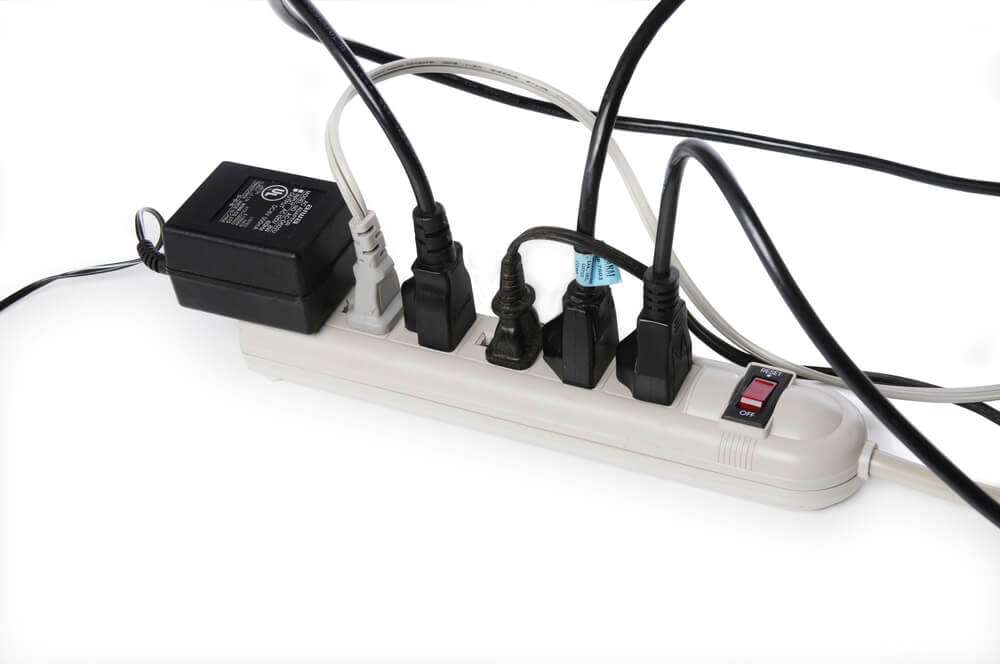
A power surge occurs when the voltage increases significantly above the designated level in a flow of electricity. Standard home and office wiring in the United States is 120 volts. If the voltage spikes above 120 when power is restored, a surge protector helps prevent damage to your electronics.
If you aren’t using surge protectors in your office, these are a quick and inexpensive first step to prevent equipment damage and data loss from variations in electrical current.
With occasional thunderstorm activity in the area, surge protectors have become even more critical.
UPS: Uninterruptible Power Supplies
A step up from regular surge protectors, an Uninterruptible Power Supply (UPS) contains a battery that provides short-term power to devices plugged into it.
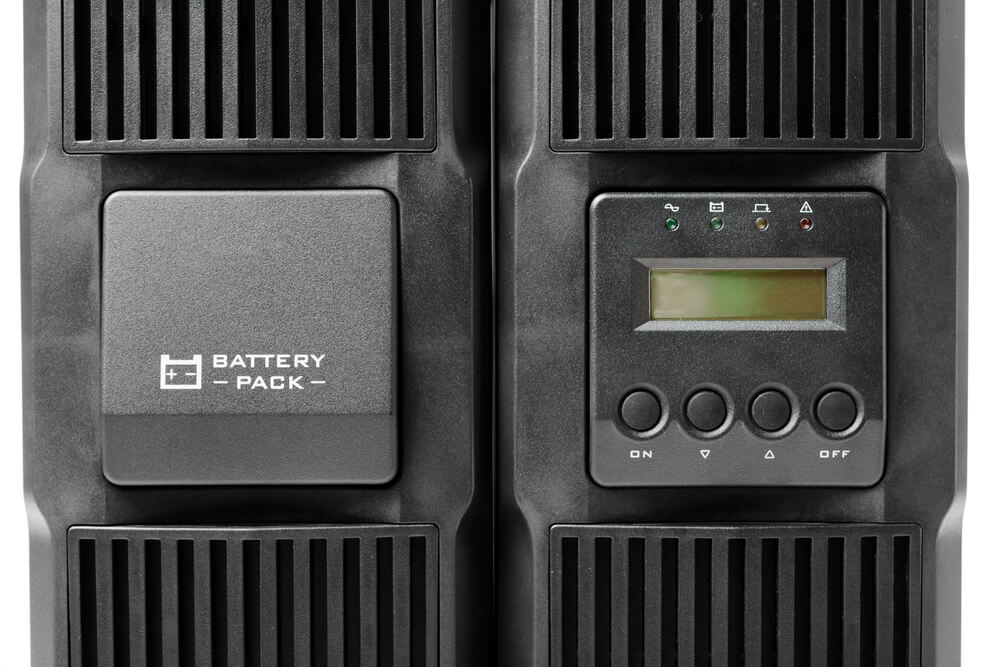
A UPS allows for an orderly shutdown of servers and desktop computers in case of a PG&E or SMUD outage.
A sudden computer shutdown can sometimes result in data corruption. UPS systems also have built-in surge protection. They are available in a wide range of configurations and price points.
Portable Generators
Generators are a longer-term solution when there is an extended power outage. Businesses in more remote locations may find a generator a particularly worthwhile investment.
A generator is like a car’s engine and alternator minus the rest of the car.
Many portable generators use either gasoline or propane as inputs. The output is standard 120-volt power.
A portable generator generally needs to be sited outside, on the ground. That means these are only practical if your business is on a lower or ground level of a building. Specific generators can be fire hazards and can’t be placed on balconies or similar areas.
A generator is an option worth considering for employees who work from home.
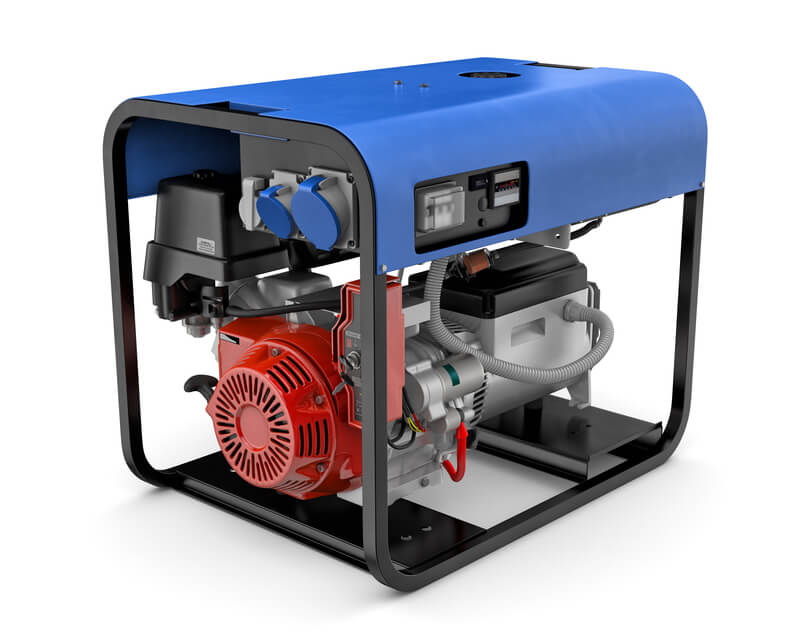
Stationary Generators
Stationary generators (permanently installed) powered by natural gas or propane typically have higher capacity than portable generators. They are much more expensive than portable generators and are subject to city or county permits in most jurisdictions.
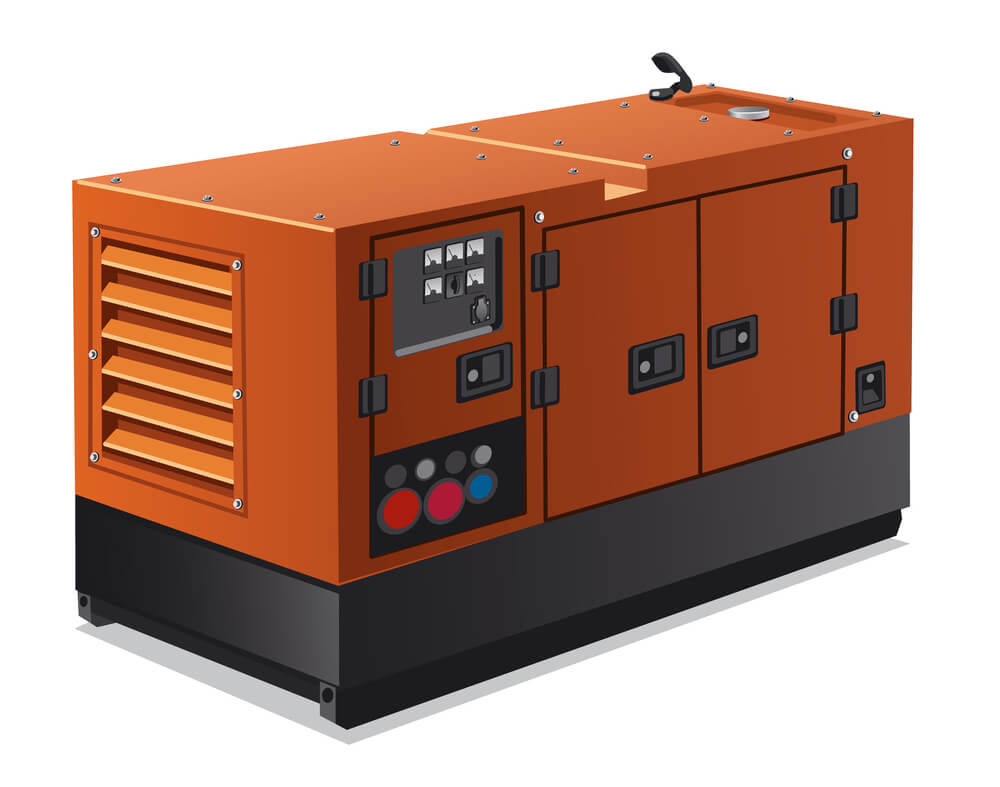
Solar Panels & Batteries
If you own your building, there are financial incentives to install a solar system.
Between the federal Income Tax Credit (ITC) and California incentives, the payback timeline on a solar investment has decreased.
There are other benefits to installing business solar in California.
Cloud Backup And Recovery of Applications and Files
Cloud backup and recovery is a popular option for businesses at risk of extended power outages.
Cloud-based applications are accessible to users from anywhere, even if a business’s primary location is without power.
But what about in-house applications such as QuickBooks Enterprise or a homegrown application running on a server inside your office?
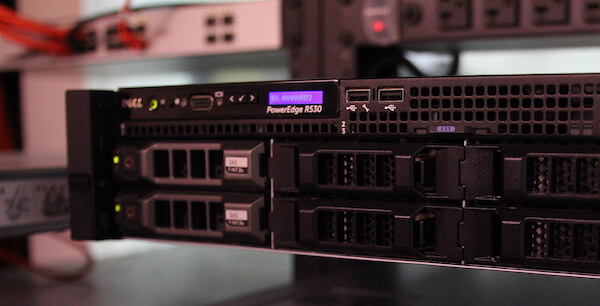
Enterprise-grade, cloud-based file sync and share (FSS) services from companies like Datto can give users access to files and applications from anywhere, on any device.
If a business experiences an extended power outage, employees can work from home on cloud-replicated instances of their company’s server-based applications.
What About Your Business Phone System?
If an extended power outage hits a business with an on-premises phone system, the best that can be done is a lot of *72 call forwarding of direct dial phone numbers to mobile and home phones.
With a cloud-based phone platform, the central phone system remains operational even if your office is without power. Employees can plug in their ‘take it anywhere‘ VoIP phone anywhere with power and internet. With sufficient bandwidth, they will have the same level of telephone service at the new location.
There’s usually advance notice before a PSPS. Other times, a power shutoff can happen with no notice. Either way, the best way to protect your business is to have one or more systems in place to get through an extended power outage.
